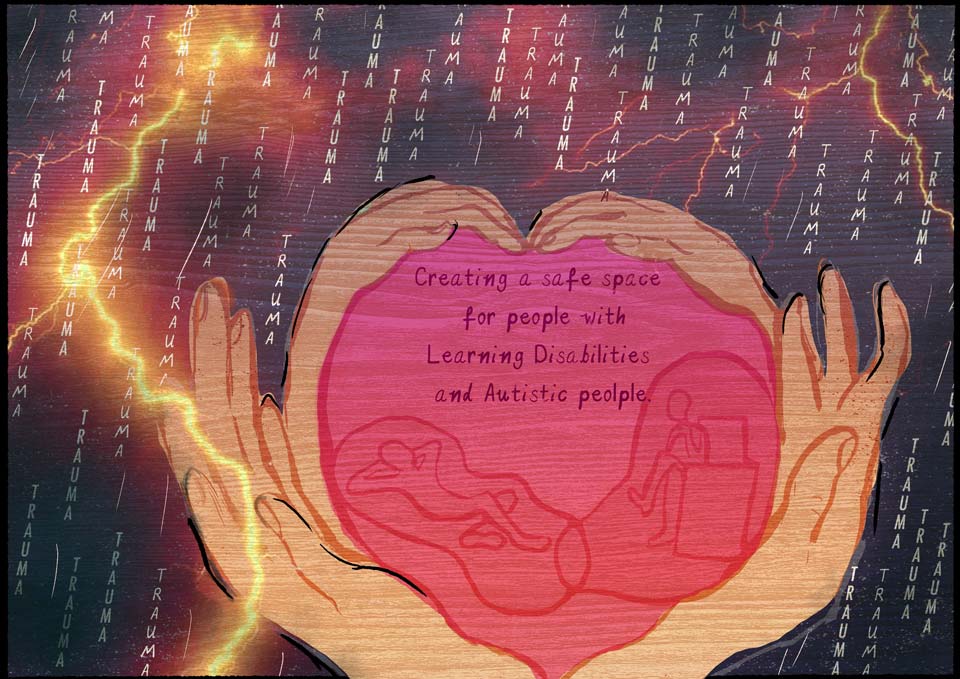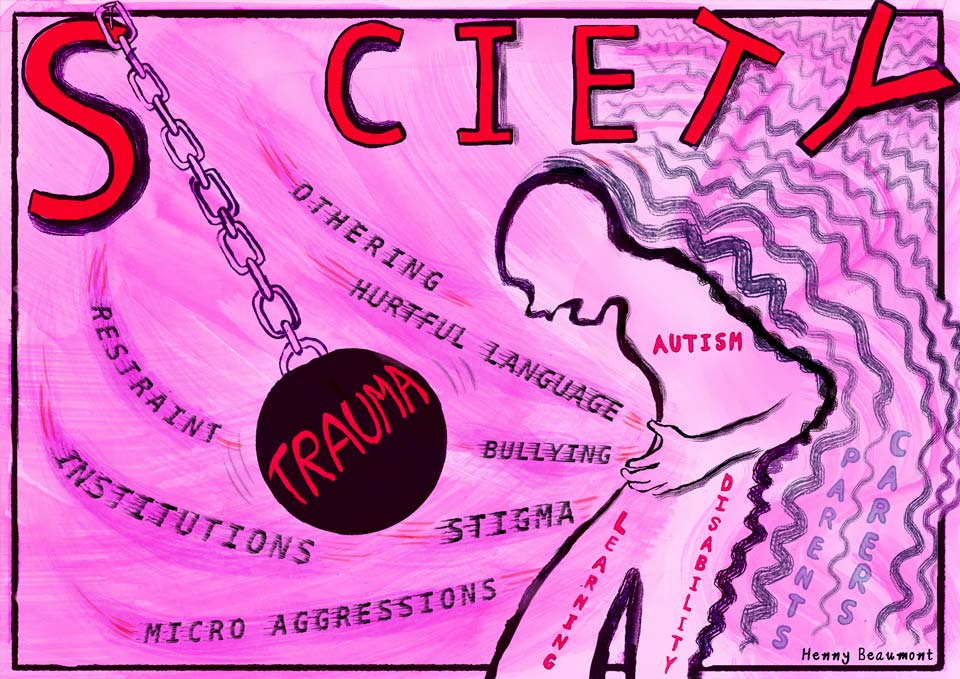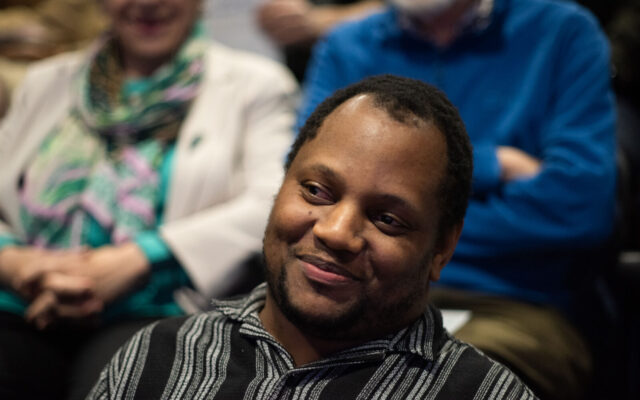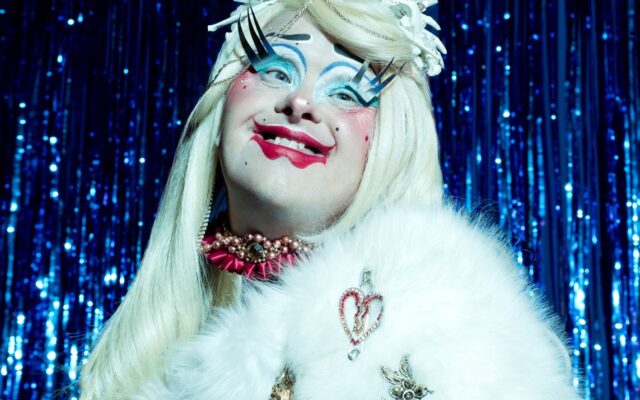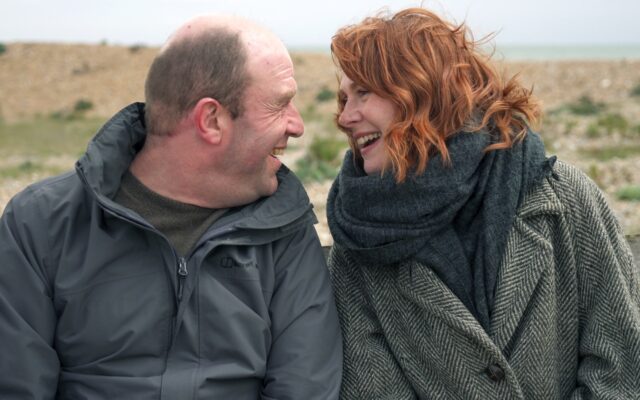As artist in residence with the British Institute of Learning Disabilities and psychotherapy charity Respond UK, I created a set of images to highlight the trauma experienced by people with learning disabilities and autism.
I was drawn to this work on both a professional and personal level. As an artist, I’m interested in how art can effect change. And, as mother to Beth, who has Down syndrome, I have experience of my daughter’s trauma.
During a series of webinars over several months last year, each exploring a different theme such as education, law or social care, I took notes, made sketches and digested the complex issues that arose.
Those who took part included professionals and people with lived experience. I created an image to accompany each webinar.
“Trauma is a wound or series of wounds,” says Respond chief executive Noelle Blackman. “All humans respond to it but some may need help to recognise their expressions of pain from professionals, family or friends.”
I am acutely aware of how difficult it is to get people to recognise and value my daughter. People don’t tend to see her for the wonderful, lovely, funny, serious person she is – they see her disability. It’s hard for people to see the isolation that comes from having a learning disability, with a lack of personal independence, a lack of friends and a lack of real paid jobs.
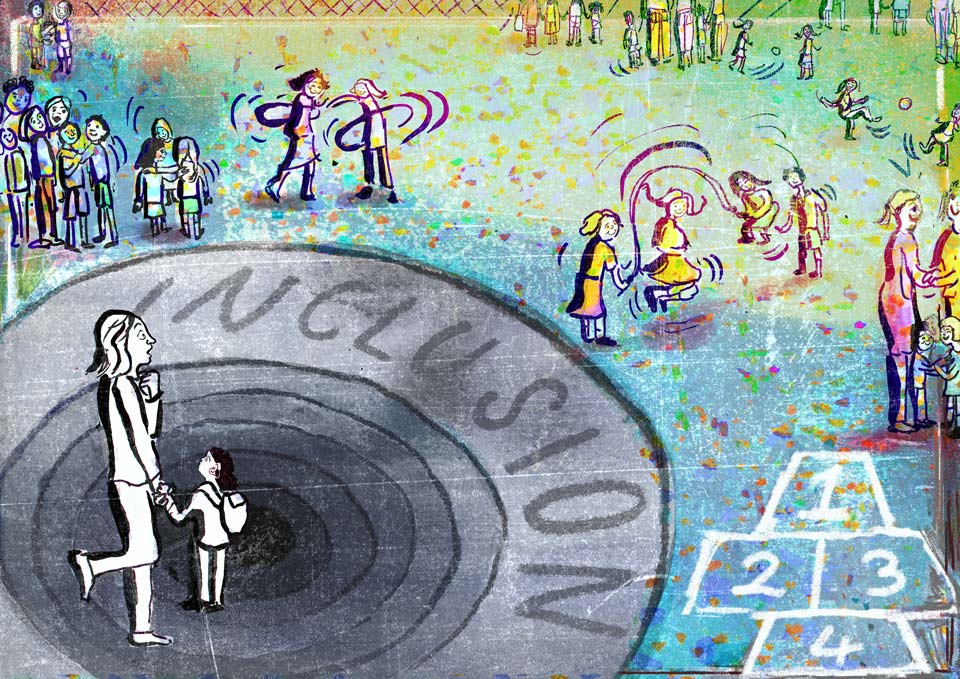
Showing separation
The image Education (above right) is from my book Hole in the Heart, which is about bringing up Beth.
It’s a while since I felt the sense of isolation and insecurity this picture illustrates. Back then, taking her to school felt like gatecrashing a party in the wrong outfit where everyone knew each other and desperately hoping someone would talk to me.
One webinar participant, a man with a learning disability, said: “Listen to people. Think about what they want and where they have come from.
“Respect the person and what they have been through. Support them to recover in their way. I came through it and I don’t want anyone else to go through it.”
Henry Beaumont is an artist.


